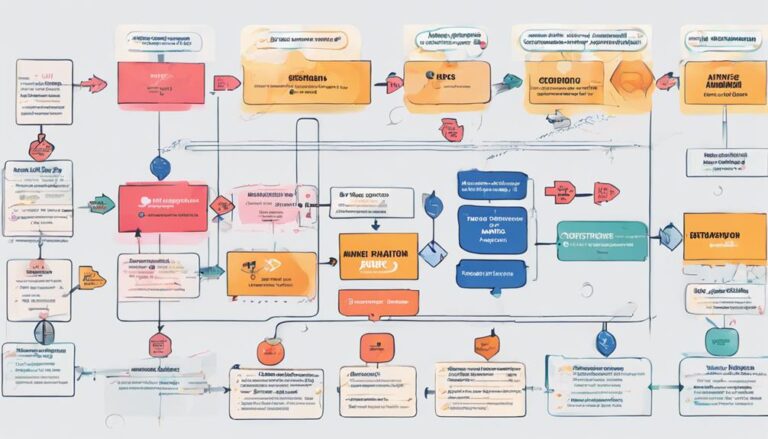Closing the Deal: Proven Healthcare Sales Techniques
Discover trust-building techniques, data-driven solutions, and effective communication strategies to enhance your healthcare sales game. Understand client needs, handle objections empathetically, and leverage insights for success. Explore proven ways to demonstrate value, overcome price concerns, and close deals with finesse. Follow-up strategies will solidify relationships and boost sales success. Master the art of closing deals in the healthcare industry and reach unparalleled success heights.
Key Takeaways
- Clearly outline how healthcare solutions meet specific needs and benefits.
- Create urgency with time-sensitive advantages and limited-time offers.
- Acknowledge and address client concerns to alleviate objections.
- Encourage small decisions or commitments to gauge readiness.
- Clearly ask for the business to guide clients towards decisions.
Establishing Trust
Wondering how to build trust with potential clients in healthcare sales? Building rapport and gaining credibility are essential steps in establishing a strong foundation for successful client relationships. In the competitive healthcare industry, trust is a key factor that can set you apart from other sales professionals.
To build rapport, focus on active listening and empathizing with your clients. Take the time to understand their needs, challenges, and goals. By showing genuine interest in their concerns, you can establish a connection based on mutual understanding and respect. Additionally, sharing relevant success stories or testimonials can help demonstrate your expertise and build credibility in the eyes of your clients.
Gaining credibility requires a combination of industry knowledge, integrity, and consistency. Provide clients with accurate information, be transparent about your products or services, and always follow through on your promises. By demonstrating reliability and expertise, you can earn the trust of potential clients and pave the way for successful sales interactions.
Understanding Client Needs
You need to understand your client's needs thoroughly to offer tailored solutions that address their specific challenges. Conducting a client needs analysis allows you to gather essential data that informs your approach and enables you to provide personalized healthcare solutions.
Client Needs Analysis
Understanding client needs is essential in healthcare sales as it allows sales professionals to tailor solutions that address specific challenges and goals. To excel in client needs analysis, consider the following:
- Utilize a data-driven approach to identify trends and insights.
- Conduct competitive analysis to understand market positioning.
- Engage in active listening to grasp client pain points accurately.
- Ask probing questions to uncover hidden needs and motivations.
- Personalize your solutions based on the unique requirements of each client.
Customized Solutions Offered
Analyzing client needs reveals valuable insights that drive the creation of tailored and effective healthcare solutions. By taking a personalized approach, you can offer customized options that address the specific requirements of each client. Tailoring solutions to individual needs not only demonstrates understanding but also increases the likelihood of closing the deal successfully.
Research shows that personalized healthcare solutions lead to higher client satisfaction rates and improved outcomes. When you offer personalized options, you show clients that you value their unique circumstances and are committed to providing the best possible solutions.
This tailored approach not only sets you apart from competitors but also builds trust and long-lasting relationships with your clients.
Effective Communication
When communicating in healthcare sales, clear patient interactions and actively listening to understand their needs are paramount.
Effective communication fosters trust, guarantees accurate information exchange, and enhances the overall patient experience.
Clear Patient Interactions
Effective communication with patients is essential in healthcare sales to build trust and understanding. When engaging with patients, remember to:
- Use clear and simple language to convey information effectively.
- Actively listen to patients' concerns and address them promptly.
- Show empathy and understanding towards patients' needs and emotions.
- Provide personalized solutions tailored to each patient's unique situation.
- Follow up with patients to make sure they're satisfied with the provided information or products.
Listening for Understanding
To truly connect with patients and establish trust, hone your listening skills to understand their needs deeply. Active listening involves more than just hearing; it requires focus, attention, and empathy. By actively listening to patients, you can uncover valuable insights into their concerns and preferences, allowing you to tailor your sales approach effectively.
Remember to provide empathetic responses that show you understand their perspectives and are committed to addressing their needs. Research shows that patients are more likely to trust and engage with healthcare professionals who demonstrate genuine empathy and understanding.
Handling Objections
Handling objections in healthcare sales requires a strategic approach that addresses concerns effectively while emphasizing the benefits of the product or service being offered. When faced with objections, consider the following key points to enhance your objection handling skills:
- Active Listening: Show empathy and actively listen to the concerns raised by the prospect.
- Educate on Benefits: Clearly articulate how the product/service addresses the prospect's needs and offers value.
- Provide Social Proof: Share success stories or testimonials from satisfied customers to build credibility.
- Ask Open-Ended Questions: Encourage dialogue and uncover underlying reasons for objections.
- Offer Solutions: Propose customized solutions to address specific concerns and showcase flexibility.
Leveraging Data and Insights
Leverage the power of data and insights to drive informed decision-making in healthcare sales. Data analysis plays a pivotal role in understanding market trends, customer preferences, and competitor strategies. By incorporating competitive intelligence into your sales approach, you can gain a strategic advantage and tailor your offerings to meet the specific needs of healthcare providers.
To emphasize the importance of leveraging data, consider the following comparison table:
| Data Analysis | Competitive Intelligence | Benefits |
|---|---|---|
| Identifies trends in customer behavior | Reveals competitor pricing strategies | Enables targeted marketing campaigns |
| Analyzes sales performance metrics | Uncovers competitor product launches | Enhances product positioning |
| Predicts future market demands | Evaluates competitor strengths and weaknesses | Guides decision-making processes |
Demonstrating Value Proposition
Demonstrate the tangible benefits your healthcare solution offers to providers through clear and compelling value propositions. When showcasing your value proposition, remember to highlight how your solution can improve efficiency, patient outcomes, and overall satisfaction for healthcare providers. Here are some value proposition examples and value demonstration techniques to help you effectively communicate the benefits of your healthcare solution:
- Cost Savings: Illustrate how your solution can reduce operational costs and increase revenue streams for healthcare providers.
- Improved Patient Care: Showcase how your solution enhances patient care quality, leading to better health outcomes and patient satisfaction.
- Time Efficiency: Emphasize how your solution streamlines processes, saving valuable time for healthcare providers to focus on patient care.
- Competitive Advantage: Position your solution as a competitive edge in the market, offering unique features that set providers apart.
- ROI Metrics: Utilize data-driven ROI metrics to demonstrate the financial benefits and long-term value of investing in your healthcare solution.
Overcoming Price Concerns
To effectively address concerns about pricing, focus on showcasing the long-term cost benefits and return on investment that your healthcare solution offers to providers. Value justification is key in demonstrating that while the initial investment may seem higher, the overall savings and improved outcomes justify the cost. Utilize data and case studies to illustrate how your solution aligns with the provider's budget and how it can lead to cost reductions in the long run.
When negotiating prices, emphasize the value-added services that come with your solution. Highlight any additional training, support, or customization options that differentiate your offering from competitors and enhance its overall value proposition. By emphasizing these extras, you can help providers see that they aren't just paying for a product or service but for a holistic solution that meets their specific needs.
Closing Techniques
Use compelling evidence and persuasive language to guide your potential healthcare clients towards making the final decision to invest in your solution. Building rapport and utilizing negotiation strategies are essential in closing the deal successfully. Here are some effective techniques to help you seal the deal:
- Highlight Benefits: Clearly outline how your healthcare solution addresses their specific needs and the benefits it offers.
- Create Urgency: Emphasize time-sensitive advantages or limited-time offers to prompt a quicker decision.
- Address Objections: Acknowledge any concerns your clients may have and provide solutions or additional information to alleviate them.
- Trial Close: Encourage a small decision or commitment from the client to gauge their readiness to move forward.
- Ask for the Sale: Clearly ask for their business, guiding them towards making a definitive decision.
Follow-Up Strategies
Highlighting the significance of maintaining a strong connection with potential clients, effective follow-up strategies play a pivotal role in solidifying relationships and fostering trust in healthcare sales. Timely follow-up is essential in healthcare sales as it demonstrates your dedication and interest in providing solutions to your clients' needs promptly. Personalized outreach further enhances the follow-up process by showing clients that you understand their unique requirements and are committed to meeting them.
| Follow-Up Strategies | Benefits |
|---|---|
| Timely follow-up | Demonstrates dedication |
| Personalized outreach | Shows comprehension |
| Clear communication | Ensures transparency |
| Building rapport | Strengthens relationships |
| Addressing concerns | Resolving issues promptly |
Conclusion
So, you've mastered the art of closing the deal in healthcare sales. Congratulations!
Now, picture yourself standing atop a mountain of successful deals, with clients clamoring for your expertise. Your trust-building, objection-handling, and value-demonstrating skills have made you a force to be reckoned with.
Keep leveraging data, communicating effectively, and sealing the deal with finesse. The healthcare sales world is yours for the taking.
Keep closing those deals like a champion!







